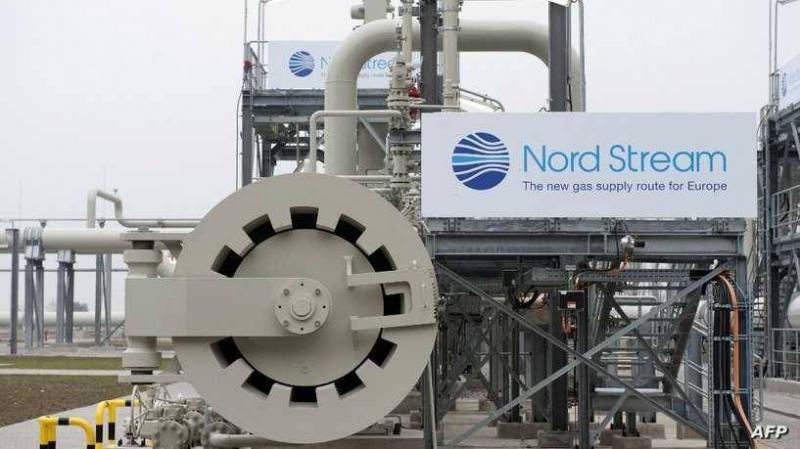European countries are concerned about potential disruptions in the coming months due to the "uncertainty" surrounding Russian gas supplies, especially following Moscow's invasion of Ukraine. The "Nord Stream 1" pipeline remains the most crucial for supplying gas to Germany, prompting Berlin to request Canada to deliver a gas turbine to the Russian company Gazprom to maintain gas flow, so Germany does not have to suspend military and economic aid to Ukraine, according to the Canadian newspaper "Globe and Mail."
While Russia claims that the reduction in supplies is due to a Siemens turbine undergoing maintenance in Canada, Germany accuses Moscow of using gas as a political weapon against the West. After gas flow through "Nord Stream 1" was halted for about 10 days, Russia resumed pumping on Thursday following a stoppage for scheduled maintenance.
However, the return of gas has not alleviated concerns about the future of supplies, raising fears of an energy crisis in the European Union this winter, according to a report published on "Oil Price." Since the onset of the war in late February, Russia has curtailed or completely cut gas supplies to about ten countries, widely viewed as a response from Moscow to the Western sanctions imposed after the invasion.
The report describes the situation regarding the gas crisis in Europe as the "Nord Stream Saga," predicting it will continue in the coming months, as Russian President Vladimir Putin sees an advantage in using gas flows to disrupt European energy strategies. It notes that Berlin has established a "direct link" between its support for Ukraine and the delivery of gas turbines to Gazprom, especially amid concerns from German Foreign Minister Annalena Baerbock about potential unrest within the country due to gas issues.
The report explains that this dilemma facing Germany "demonstrates the influence that Russia still has over the largest economy in Europe," as the German industry remains dependent on Russian gas with no available alternatives outside of Russia. While Germany seeks agreements with Canada to ensure continued Russian gas supplies, meetings involving their NATO ally Turkey raised eyebrows when Turkish President Recep Tayyip Erdoğan met with his Iranian and Russian counterparts, increasing concerns within NATO and the EU.
According to a report by Agence France-Presse, Berlin, like other European countries, is working to diversify its energy sources, including steps such as purchasing liquefied natural gas. However, Germany still imports 35% of its gas needs from Russia, a 20% decrease from levels before the war in Ukraine.
Researcher at the Brookings Institution, Constanze Stelzenmüller, warned that a "gas crisis in the largest economic power in the EU would cause anxiety across the continent," according to AFP. "Nord Stream 1" consists of two parallel pipelines extending 1,224 kilometers under the Baltic Sea, from Vyborg in Russia to Lubmin in northeastern Germany. From there, other pipelines transport natural gas to various parts of the European continent. "Nord Stream 1" entered service in 2011, with a pumping capacity of 55 billion cubic meters per year, making it one of the most important sources of gas supply for the continent.
The Russian state-owned company Gazprom holds a 51% stake in the pipeline, while the remaining shares are distributed among German companies E.ON and Wintershall Dea, Dutch company Gasunie, and French company Engie. The project was long regarded as an example of economic cooperation between Russia and the EU, with significant reliance from countries like Germany and Italy on low-cost Russian natural gas.




